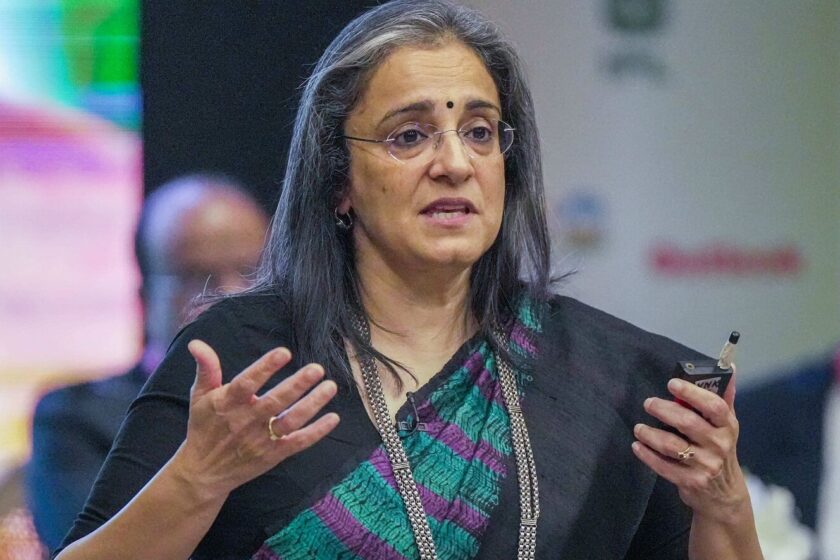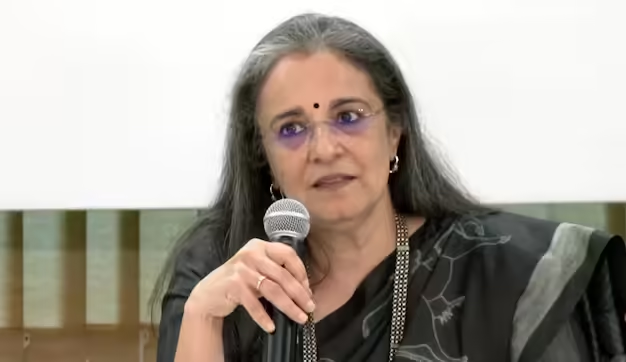Parliamentary Panel Summons SEBI Chief and Officials Amid Allegations of Conflict of Interest
The Public Accounts Committee (PAC) of the Indian Parliament has issued a summons to the chairperson of the Securities and Exchange Board of India (SEBI), Madhabi Puri Buch, and top officials from other key government departments. The officials, including representatives from the Department of Economic Affairs, Telecom Regulatory Authority of India (TRAI), and the Department of Revenue, have been called to appear before the PAC on October 24, 2024. The meeting is set to address concerns raised by U.S. investment research firm Hindenburg Research, which has brought forward serious allegations involving Buch and her husband, Dhaval Buch, relating to their alleged connections with the Adani Group.
Scrutiny of SEBI’s Chairperson: The Core of the Inquiry
The decision by the PAC to summon Buch and other officials stems from Hindenburg Research’s claims regarding potential conflicts of interest involving the SEBI chairperson. SEBI is responsible for regulating India’s securities and financial markets, ensuring transparency, fairness, and integrity. Therefore, any perceived or actual conflict of interest within SEBI’s leadership could have wide-ranging implications for the trust and credibility of India’s financial regulatory framework.
Also Read: Premier Houston Semi Truck Accident Attorney
Hindenburg’s allegations are focused on the Buch family’s alleged financial ties to offshore entities linked to the Adani Group. This conglomerate, led by billionaire Gautam Adani, has been the subject of repeated scrutiny, with accusations of questionable financial practices and lack of transparency. In its report, Hindenburg raised concerns about the impartiality of SEBI under Buch’s leadership, noting that SEBI has shown a “lack of interest” in pursuing the charges against the Adani Group, even after the release of Hindenburg’s damning report 18 months ago.
Given SEBI’s role as the guardian of India’s financial markets, the potential influence of corporate interests on its operations is a matter of great public and political concern. The PAC’s meeting on October 24, therefore, promises to address not just the allegations against Buch but also the broader issue of how effectively regulatory bodies like SEBI are performing their mandated duties.
PAC’s Review of Regulatory Bodies
The PAC’s inquiry will go beyond SEBI and Madhabi Puri Buch. The official agenda for the October 24 meeting emphasizes a “Performance Review of Regulatory Bodies established by Act of Parliament.” This review includes oral testimony from representatives of the Ministry of Finance (Department of Economic Affairs), SEBI, the Ministry of Communications, the Department of Telecommunications, and TRAI. The committee’s focus on multiple regulatory bodies highlights a broader concern about the functioning and effectiveness of these institutions.
The inclusion of regulatory authorities from other sectors, like telecommunications, suggests that the PAC is seeking to evaluate whether Indian regulatory bodies, across the board, are operating independently and effectively in the face of corporate pressures. The PAC’s review could result in recommendations for reforming how these bodies operate to ensure that they remain free from undue influence, whether from political or corporate interests.
Allegations of Conflict of Interest and SEBI’s Response
At the heart of the issue is the question of conflict of interest. As SEBI’s chairperson, Madhabi Puri Buch is expected to maintain the highest standards of impartiality. However, Hindenburg Research’s allegations suggest that the Buch family’s purported financial interests in offshore entities linked to the Adani Group could compromise her ability to make unbiased regulatory decisions. In its report, Hindenburg specifically questioned SEBI’s delayed response in investigating the Adani Group after the release of its findings, raising concerns that Buch’s leadership might be compromised by her family’s alleged business ties.
These accusations are not only politically sensitive but also significant for the broader integrity of India’s financial markets. If the allegations are found to be credible, it could undermine investor confidence, both domestically and internationally. SEBI is tasked with ensuring fair play in the markets, and any perception that its leadership is compromised could have serious repercussions for market transparency and the reputation of India’s financial system.
Political Ramifications: Nationwide Protests and Calls for Resignation
The controversy surrounding Madhabi Puri Buch has taken on a political dimension as well. In August 2024, the Congress Party, India’s main opposition party, staged nationwide protests demanding Buch’s resignation from her role as SEBI chairperson. The Congress Party has used the allegations to question the impartiality of SEBI and the broader regulatory apparatus under the ruling Bharatiya Janata Party (BJP) government.
For the Congress, the Hindenburg report represents an opportunity to criticize the BJP-led government’s relationship with large corporate entities, particularly the Adani Group. Over the years, opposition parties have repeatedly accused the government of being too close to big business, and the allegations against Buch feed into this narrative. By calling for her resignation, the Congress aims to bring the issue of regulatory capture—where regulatory agencies are dominated by the very industries they are supposed to regulate—into public discourse.
The Adani Group and Regulatory Oversight
The Adani Group itself has been a subject of intense scrutiny over the years, both in India and abroad. The conglomerate, with interests spanning infrastructure, energy, ports, and more, has faced repeated allegations of financial irregularities, lack of transparency, and regulatory breaches. These concerns have only intensified following the release of Hindenburg Research’s report, which accused the group of accounting fraud, market manipulation, and improper use of offshore entities to conceal debts and inflate stock prices.
Also Read: Trucking Injuries Attorney Houston: Seeking Justice After an Accident
In this context, the perceived lack of enthusiasm from SEBI in investigating these charges raises critical questions about the effectiveness of India’s regulatory oversight. If SEBI, as India’s primary market regulator, is seen as being too lenient or compromised by corporate interests, it could deter investors and damage India’s reputation as a reliable financial market.
The PAC’s inquiry into SEBI’s performance and Buch’s leadership will therefore not only address the immediate allegations but also explore the broader issue of regulatory independence in India.
Broader Inquiry into Regulatory Bodies
Beyond SEBI, the PAC’s review of other regulatory bodies such as TRAI and the Department of Telecommunications signals a broader concern about how these institutions function. Regulatory bodies play a vital role in overseeing and managing key sectors of the economy, from telecommunications to financial markets. Ensuring that these bodies operate effectively and independently is crucial for maintaining public trust and ensuring fair competition.
With the October 24 meeting set to gather oral evidence from top officials, the PAC is likely to examine whether these regulatory agencies have been effective in carrying out their legislative mandates and whether they remain insulated from corporate or political influence. The results of this inquiry could lead to broader reforms aimed at strengthening the autonomy and performance of India’s regulatory institutions.
Conclusion: A Critical Moment for SEBI and Regulatory Oversight
The October 24 PAC meeting will be a significant event in the ongoing scrutiny of SEBI’s leadership and the functioning of India’s regulatory bodies. As the PAC seeks to address the allegations of conflict of interest involving Madhabi Puri Buch and her family, the outcome of the inquiry could have far-reaching implications for the credibility of India’s financial regulatory framework.
At stake is not only SEBI’s reputation but also the broader question of whether India’s regulatory bodies can function independently and effectively in the face of corporate and political pressures. With political parties, investors, and the public watching closely, the PAC’s findings could shape the future of regulatory oversight in India and determine the extent to which these institutions can uphold their responsibilities without bias or compromise.


